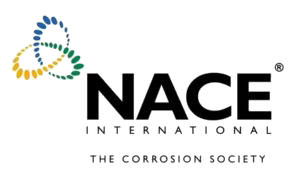Titanium Corrosion Resistance
Titanium occurs mainly as an oxide ore and is the 4th most abundant metallic element in the Earth’s crust. The commercially viable forms are rutile or Titanium dioxide and ilmenite or Titanium-iron oxide, with rutile having the richest Titanium content. First isolated in an impure form in 1887, it wasn’t until 1952 that the material saw use for aircraft applications and pressure vessels.
Being a reactive metal, Titanium shows exceptional corrosion resistance in oxidizing acidic environments due to its passive oxide film. Over the last half century, Titanium as become the established corrosion resistant material and has seen its use expand widely. The chemical manufacturing industry has adopted the material heavily and often uses the commercially pure Grades of Titanium, such as Grade 2, Grade 4, Grade 7, and Grade 12 Titanium. Similar to certain Stainless Steels, Titanium is dependent on the oxide film mentioned above and best performs in oxidizing media like hot nitric acid. The film that forms is significantly more protective than Stainless Steel and often performs better in environments that cause pitting and crevice corrosion, such as seawater, chlorine exposure, organic chlorides and others. Though Titanium is resistant, it is susceptible to pitting and crevice attacks at high temperatures and is not immune to seawater corrosion if temperatures rise above 230oF (110oC).
Chemicals like chlorides chloride (FeCl3 and CuCl2) which usually pit most metals and their alloys, will inhibit corrosion on Titanium. Though Titanium isn’t resistant to pure sulfuric and hydrochloric acids, it performs well when coming in contact with acids that are heavily contaminated with ferric and cupric heavy metal ions. Along the same vein, Titanium is highly resistant to steam and other caustic environments. After long exposure to steam at temperatures around 750oF (400oC). Because of corrosion this resistance, Titanium is optimal for heat-exchangers and pressure vessel piping, tubing, and subsequent fittings that are used in seawater.
Though Titanium has been predominantly used in the Aerospace industry, the materials is continuously finding widespread use in industrial industries, weapons and defense, Oil & Gas, and many others.
Products available at Titanium Industries











